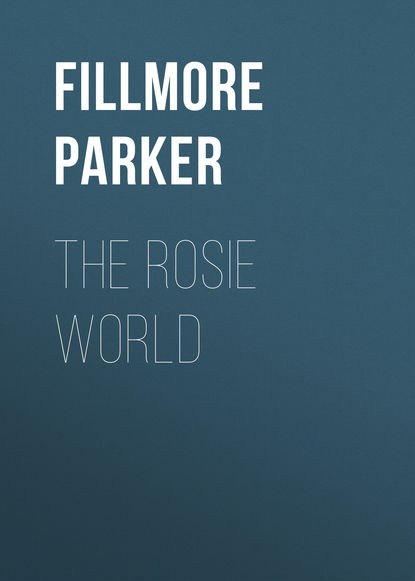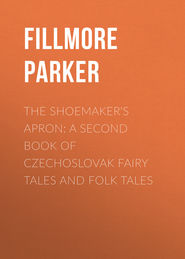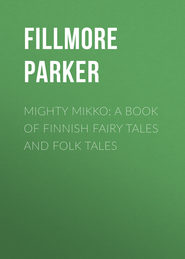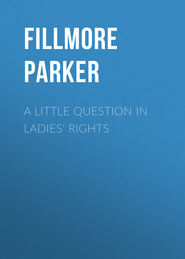По всем вопросам обращайтесь на: info@litportal.ru
(©) 2003-2024.
✖
The Rosie World
Настройки чтения
Размер шрифта
Высота строк
Поля
Mrs. O'Brien blinked her eyes. "Has some one been offering you that kind of a position?" Her tears ceased to flow. Once again she beamed on Ellen with all her old-time pride. "Ah, Ellen, you rogue, you're keeping something back! Come, tell me what's happened!"
Ellen sighed helplessly. "Ma, I'm trying to tell you, but you make it awful hard for me. You go off every minute and don't give me a chance to finish."
Mrs. O'Brien folded her hands complacently. "Ellen dear, I won't utter another syllable – I promise you I won't. Now tell me in two words what's happened."
"Well, Ma, it's this: I'm through with stenography and I'm going in for millinery, which I think I can do better."
"But where, Ellen, where are you going in for it? That's the great p'int!"
"I'm going to try Hattie Graydon's aunt first. She always says that not one of the girls in her shop begins to have the taste that I've got, and one time she told me if ever I wanted a job to come to her."
The happy look in Mrs. O'Brien's face slowly faded. Tears again filled her eyes. "And is that all you've got to tell me?"
"Yes, Ma, that's all. I'm going down to see Miss Graydon this morning."
"Oh, Ellen, Ellen, to think of your doing a thing like that without asking the advice of a soul! You're a foolish, headstrong girl!"
Ellen dropped her eyes. "George Riley thinks I'm doing right."
Mrs. O'Brien looked up sharply.
"Jarge Riley indeed! And may I ask what Jarge Riley's got to with it?"
"George and me are friends again. I thought I better tell you."
In Mrs. O'Brien amazement took the place of grief. "Ellen O'Brien, do you mean to tell me that you've took up with Jarge Riley when you might have had a gentleman like Mr. Hawes?"
The flush that her mother's words excited was one of anger as well as embarrassment. "Ma, you listen to me: I've never once told you that I might have Mr. Hawes! You've made that up yourself!"
"Made it up myself, indeed! when he's been taking you out night after night and treating you like a real lady!"
"And what's more," Ellen went on vehemently, "George Riley's worth twenty Philip Hawses!"
Mrs. O'Brien looked at her sharply. "Is it that you're going to marry Jarge Riley?"
Ellen, breathing hard, made answer a little unsteadily: "Yes."
Mrs. O'Brien dropped back limply into her chair. "Mercy on us!" she wailed, "and is this the end of your fine looks and your fine education – to marry a farmer like Jarge Riley! Why, you could have had him without any business college or nothing!"
Ellen stood up and Mrs. O'Brien, her face woe-begone and tragic, made one last appeal: "Ellen O'Brien, I ask you in all seriousness, are you determined to throw yourself away like that?"
Ellen was nothing if not determined. "I'm going down to Miss Graydon's now," she said in a casual tone which ended all discussion; "and me and George will probably get married in the spring."
CHAPTER XXXVI
THE HAPPY LOVER
It was several days before Mrs. O'Brien regained her usual complacency. "'Tain't that I've got anything against you, Jarge," she explained many times to her prospective son-in-law. "I'm really fond of you and I treat you like one of me own. But what with her fine looks and her fine education I was expecting something better for Ellen. Why, Jarge, she ought to be marrying a Congressman at least. Now I ask you frankly, don't you think so yourself?"
For George the situation was far from a happy one. To be the confidant of Mrs. O'Brien in this particular disappointment was embarrassing, to say the least. Moreover, certain of Mrs. O'Brien's objections were somewhat difficult to meet and yet they had to be met and met often, for Mrs. O'Brien harped on them constantly.
"And, Jarge dear, if you do go marry her and carry her off to the country, what will you do with her out there? Tell me that, now! For meself I can't see Ellen milkin' a cow."
George tried hard to explain that milking cows was not the only activity open to a farmer's wife; that, in all probability, Ellen would never be called on to milk a cow. His protests were vain, for, to Mrs. O'Brien, milking a cow stood not so much for a definite occupation as for a general symbol of country life. George might talk an hour and very often did and, at the end of that time, Mrs. O'Brien would sigh mournfully and remark: "Say what you will, Jarge, I tell you one thing: I can't see Ellen milkin' a cow."
Moreover, life with Ellen was not at once the long sweet song that George had expected. Not that she was the old imperious Ellen of biting speech and quick temper. She was not. All that was passed. She was quiet now, and docile, anxious to please and always ready for anything he might suggest. Would she like a street-car ride tonight? Yes, a street-car ride would be very nice. Or the movies or a walk? She would like whatever he wanted. Her gentleness touched him but caused him disquiet, too, because he could not help realizing that a great part of it was apathy. One thing pleased her as much as another, which is pretty nearly the same as saying one thing bored her as much as another.
"But, Ellen," he protested more than once, "you don't have to go if you don't want to!"
"Oh, I want to," she would insist in tones that were far from convincing.
George could not help recalling the eager joy with which Rosie used to greet each new expedition. Why wasn't Ellen the same, he wondered in helpless perplexity. He went through all the little attentions which Rosie had taught him and a thousand more, and Ellen received them with a quiet, "Thanks," or a half-hearted, "You're awful kind, George."
"Kind nuthin'!" he shouted once. "I don't believe you care one straw for me or for anything I do for you!"
His outburst startled her and, for a moment, she faltered. Then she said: "I don't see how you can say that, George. I think you're just as good and kind as you can be."
"Good and kind!" he spluttered. "What do I care about being good and kind? What I want is love!"
"Well, don't I love you?" She looked at him beseechingly and put her hand on his shoulder. Her caresses were infrequent and this one, slight as it was, was enough to fire his blood and muddle his understanding.
"You do love me, don't you?" he begged, pulling her to him, and she, as usual, submitting without a protest, said, yes, she did.
A word, a touch, and Ellen could always silence any misgiving. But such misgivings had a way of returning, once George was alone. Then he would wish that he had Rosie to talk things over with. He was used to talking things over with Rosie. For some reason, though, he never saw Rosie now except for a moment when she handed him his supper-pail each evening at the cars. At other times she seemed always to be out on errands or on jaunts with Janet and Tom Sullivan. George looked upon Tom as a jolly decent youngster and he was pleased that the intimacy between him and Rosie was growing. But at the same time he could not help feeling a little hurt that Rosie should so completely forget him. True, he was bound up heart and soul in Ellen and now he was her accepted lover. That, it seemed to him, ought to be happiness enough and he told himself that it was enough. Then he would sigh and wonder why he wasn't as light-heartedly gay as he used to be when he and Rosie went about together. Rosie, apparently, had entirely forgotten what good chums they once had been. Well, after all, he couldn't blame her, for she was only a child.
George did not know and probably never would know that Rosie was watching him and watching over him with all the faithfulness of a little dog and that she knew all there was to know of the situation between him and Ellen.
George had set the latter part of September as the time for his return to the country. For four long years he had been working and saving for this very event. Several times before he had been about to leave but always, at the last moment, some untoward circumstance had crippled his finances and he had been forced to stay on in the city another few months. Now for the first time he could go and now he was loath to go. But he had made his announcement and all his little world was standing about, waiting to see him off and to bid him god-speed.
He was ashamed to acknowledge even to himself the indecision that was tugging at his heart. "Don't you think, Ellen," he ventured at last, "it might be just as well if I waited till Christmas?"
"Oh, George!" Ellen looked at him with a shocked expression. "I don't see how you can say such a thing after the way you've been waiting all these years! Besides, what would your poor mother say if you didn't come now that you could? You've told me yourself how the burden of things has fallen on her more and more and how anxious you are to relieve her."
"I know," George acknowledged; "but, Ellen girl, don't you see I can't bear to leave you now I've got you. I've had you for such a little while!"
"Won't you have me just the same, even if you are in the country? Besides, you'll be getting things ready for me by spring."
George took a sharp breath. "But I want you now!"
Ellen looked at him gravely. "See here, George, there's no use talking that way. You've got to work and I've got to work, and if we don't get our work done this winter it'll be all the worse for both of us when spring comes. Your father's expecting to hand over the management of the farm to you this fall and it's up to you to take it. Ain't I right?"
George sighed. "I suppose you are."
"Then don't be foolish. Besides you can come down and see me at Thanksgiving."
George gasped. "Why, Ellen, I expect to see you before that! I could come in and stay over Sunday 'most any week."
"No, George, you mustn't do that! I won't let you!" Ellen spoke vehemently. "It would only cost you money and you know perfectly well you need every cent of cash you've got! Once you're back in the country you won't be getting in three dollars a day ready money. No! You'll come to see me Thanksgiving and not before."










